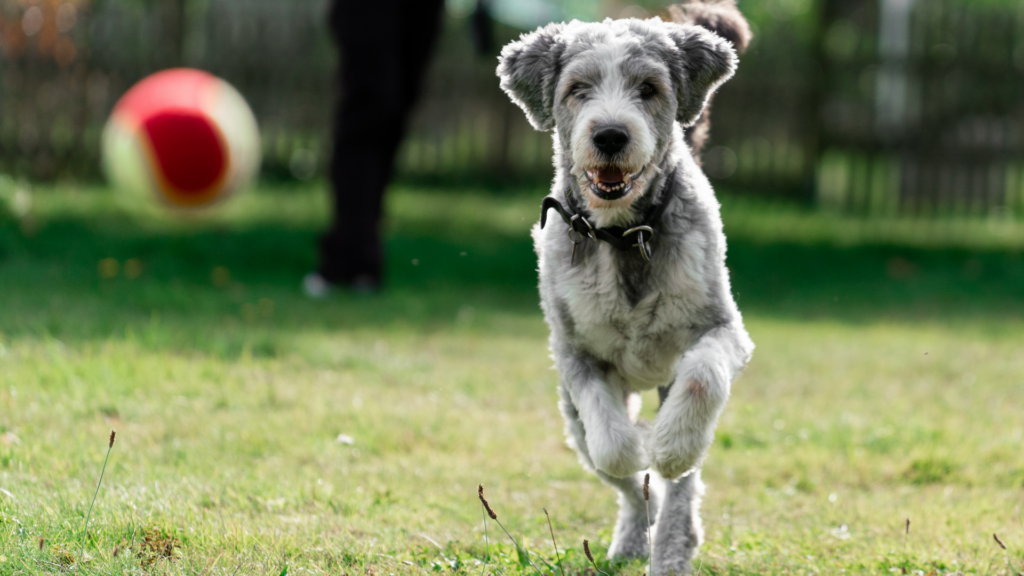Throw the ball, chase it, bring it back, repeat – if you’re a dog owner, you’re very familiar with how a classic game of fetch plays out. And if your pup is a bundle of energy, it may feel like this game could loop on for hours with no end in sight. What is it about chasing a ball and bringing it back that keeps dogs so enthralled?
The fetch infatuation is actually more than just a game to dogs. In fact, enjoying a game of fetch can be attributed to both genetics and ancestral traits, along with psychological benefits that occur when a dog chases and retrieves a ball.
Fetch is DNA-Driven
A dog’s infatuation with fetch is practically ingrained in their DNA, going back over 15,000 years, when dogs were trained to help hunt and retrieve food for humans. Those dogs that were especially good at retrieving food were then bred specifically to pass those skills on to their puppies, and the cycle continued.
That being said, some breeds are more likely to enjoy fetch than others, including Border Collies and Labrador Retrievers (they have “retrieve” in their name, afterall). That’s because these dog breeds were specifically bred to hunt, so they’re born with an internal drive to retrieve items.
So while you may not be sending your dog out to hunt for your dinner every night, they still have inherited some of those ancestral traits, which is why chasing and retrieving are so much fun to them!
Fetch is Brain Boosting
Dogs love to play, especially with their owners. When you’re throwing the ball to your pup, they’re not only tapping into their instinctual behaviors, but also enjoying quality time with you, which is a win-win in their mind.
Dog psychology experts actually claim a game of fetch stimulates the reward regions of a dog’s brain, so playing actually feels good to them, which could explain why they never seem to tire out during a game of fetch.
Fetch is Not for Every Pup
Put simply, some dogs, just like people, aren’t interested in certain activities – fetch being one of them. Aside from breed specifics, some dogs just won’t play fetch, for a variety of reasons, including:
- They’re Not Interested in What They’re Chasing After: If a dog isn’t interested in what you’re throwing, they’re not going to chase it. To try and gain their attention, switch up what you’re throwing them, including a variety of tennis balls, soft toys, ropes, frisbees; you get the idea.
- They Don’t Understand the Game: Not all dogs are born knowing the rules of fetch. If your dog seems confused, you can teach them how to fetch by breaking down the game into three steps: take it (encourage your dog to move towards a toy and reward that them for doing so), drop it (work on getting your dog to leave the toy they’ve picked up, and reward them for doing so), and retrieve it (ask your dog to pick the toy up, and reward them for doing so).
- They Won’t Bring it Back: If your pup enjoys chasing a toy but won’t bring it back, consider playing with two toys. Once your dog chases and retrieves one, throw the other so they constantly have something to chase after.
If you’ve tried the tips above and your dog still isn’t interested in playing fetch, that’s okay. Rather than forcing them into an activity they’re not into, try other games, toys, and long walks to get them the exercise they need. They’ll be happy they get to spend time with you, regardless!



Just wondering what breed the gray and white dog is. Thank You
Looks like some Schnauzer in there, maybe a Schnoodle?
Our French Bull dog keeps the ball and will not bring it back except to let me try to take it away. She is very competitive. I’ll try it with the two balls and see what happens. She likes the (friezbe) but does the same thing.